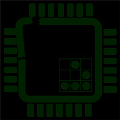Yesterday I gave a presentation at Bsides Seattle on defending firmware. This version of the presentation attemped to address DFIR audience, not just SysAdmin/Site Reliablity Engineer audience.
I got some interesting feedback on IR after this presentation, we’ll do a blog on this in the next few days. As well as a few updates to existing IR standards to showcase where firmware is lacking.
Below is copy of slides:
There are 4 sections, Threats, Tech, Tools, and Guidance. The Tech section is probably weakest to read without having an audio. This talk was result of trying to jam a 4-hour training session into a 1-hour talk, the Tech section lost the most from this compression.
bsidesseattle2018.fisher.defending-firmware
Bsides didn’t record audio/video of their event.
I updated the slides from yesterday, the “DIY Homework” section focused on following along with the analysis in the old Intel ATR blog post on the Wikileaked Hacking Team UEFI malware blob. However, that blog URL is no longer around.
If you know of any online archives of these URLs, please leave a Comment on this blog post, thanks!
http://www.intelsecurity.com/advanced-threat-research/blog.html
http://www.intelsecurity.com/advanced-threat-research/ht_uefi_rootkit.html_7142015.html
This is the best-fit replacement for missing above URL, and it includes some new content (eg, blacklist command) that original blog did not. Save a copy of the blog post, I don’t expect it to be archived:
https://securingtomorrow.mcafee.com/business/chipsec-support-vault-7-disclosure-scanning/


You must be logged in to post a comment.